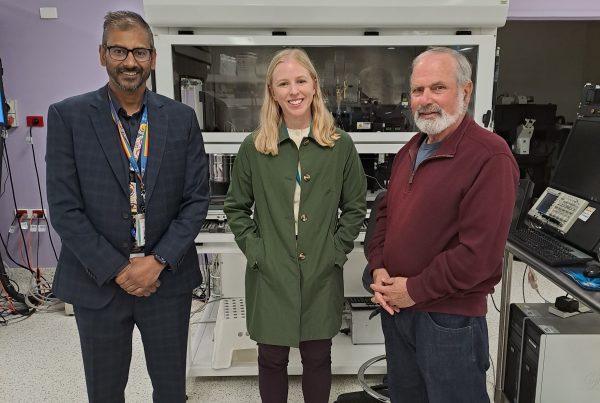Trikafta has been available on the Pharmaceutical Benefits Scheme (PBS) for eligible Australian adults, for a little over 12-months now. This new treatment option has been shown to improve outcomes for many people living with Cystic Fibrosis.
In Australia, eligible 6-11 year olds are now being provided the opportunity to start Trikafta, after it was available on the PBS from 1st May 2023.
While the medication has been shown to improve the quality of life for many living with cystic fibrosis, everyone reacts and responds differently to the medication. Being aware of the potential side effects that may accompany its use is essential, as understanding what to expect and knowing where to seek support can make the journey with Trikafta more manageable.
Common Side Effects
Like any medication, Trikafta may cause side effects, although not everyone will experience them. The most common Trikafta side effects include:
1. Nausea
2. Vomiting
3. Flaky nose (dryness and peeling of the nose)
4. Headache
5. Common cold symptoms (such as a runny or stuffy nose, cough, or sore throat)
6. Diarrhoea
7. Stomach-ache
8. Rash (skin irritation or inflammation – occurs more frequently in women and those using hormonal contraceptives)
9. Blocked nose (nasal congestion)
10. Some patients have experienced slight, temporary increases in blood pressure
Serious Side Effects:
Although uncommon, there are potentially serious side effects associated with Trikafta that require immediate medical attention. These include:
1. Liver damage and worsening of liver function: increased liver enzymes in the blood – elevated liver enzyme levels may indicate liver problems. (Look out for symptoms such as significant pain or discomfort in the upper right abdominal area)
2. Yellowing of the skin or eyes (jaundice)
3. Loss of appetite
4. Dark urine
If you experience any serious side effects, seek medical attention.
It’s important to note that the above lists are not exhaustive, and there may be additional side effects that are not yet known. Inform your clinical team, doctor or pharmacist should you notice any unusual symptoms (even if they’re not listed) or feel unwell while taking Trikafta.
It’s also crucial to remember that everyone responds differently to medication – one person’s experience could be different to another’s.
How can CFCC help?
The effects of Trikafta can vary among individuals. Some are not eligible for Trikafta, while some choose not to take it, have to stop, or require support while adjusting their routines. Also, while Trikafta can be lifechanging for some, it may not meet everyone’s expectations.
All these factors can take a toll on the mental and emotional well-being of those living with cystic fibrosis.
The Cystic Fibrosis Community Care (CFCC) team is here to provide emotional support and can link you with extra services, such as our physiotherapy, CF-related reimbursement, and respite programs, should you need them.
For those on Trikafta, it’s important to continue working with your clinical teams as you adjust to this change. If you have questions about your daily routine and management of cystic fibrosis, we encourage you to communicate with your clinical team, and our CFCC support team is also here to answer any questions you may have.
For assistance with incidental expenses related to starting Trikafta or any CF-related expenses, our reimbursement program is available to you.
If you live far from the clinic, we can connect you with state-based regional transport support, like IPTAAS in NSW or VPTAS in VIC. We also offer our accommodation assistance program for regional and rural families who need to travel to metro areas.
You can access more information on our CF-related reimbursement, accommodation assistance program, and the other programs we provide here.
Please email support@cfcc.org.au or call 1300 023 222 should you need any support at all.
The views, experiences or comments shared on this website are not medical advice and may not reflect opinions or beliefs of Cystic Fibrosis Community Care. Always seek the guidance of your doctor or other qualified health professional with any questions regarding your health.




